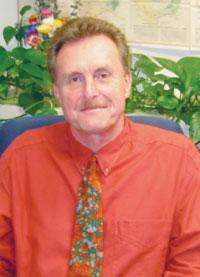Paul Atwood, an American history teacher located in the William Joiner Center for the Study of War and Social Consequences at UMass Boston, is one of the editors for Sticks and Stones: Living with Uncertain Wars. The book is compiled of articles taken from the New England Journal on varying view points on war and political issues. It is a collection of fourteen essays as well as an introduction by another one of the editors.
In the anthology, “a distinguished group of scholars…examine what can be learned from the wars of the twentieth century.” According to the Amazon.com review, “the book is divided into four sections: Understanding the World as We Have Known It; Global Uncertainties; Whose Values? Whose Justice?; and Shaping a New World.” The different sections talk about the lessons we should have learned from previous wars, how we do, or do not, apply these lessons, as well as other topics concerning policies of our government.
Atwood also produced a piece of work about Agent Orange and the repercussions due to use of the deadly chemical. Although only intended to clear away jungle cover from the Vietcong, Agent Orange was illegally used to kill Vietnamese crops, such as rice. The mistreatment of this concoction caused cancer and birth defects on both sides of enemy lines. “Tens of thousands of veterans and children of veterans have defects… as result of Agent Orange,” Atwood sadly noted.
A war veteran himself, Atwood served as a Marine in the Dominican Republic during the beginning of the Vietnam Era in ’65. He volunteered for the war effort, but the physical act of being in the thick of it all “brought home to me the injustice of the war,” Atwood explains. Even before he was deployed, Atwood proudly admitted to having an anti-war attitude; an odd stance for a “blue-collar” son from Boston and he was to follow his father’s footsteps of being a WW1 Marine Vet.
After returning from overseas, Atwood attended UMass Boston where an astonishing 10% of the student population had been in the military. With such a large percentage of students having had some experience from one of the branches of the military, Atwood was able to acquire a fair amount of friends with knowledge of what the war was really like from the inside. College veterans were “telling [him] about horrible things happening,” things that college students should never have to experience so early in their lives, if ever at all.
Atwood had numerous reasons for why he felt so passionately against the war. Besides having the unique experience of fighting abroad, the government and political policies at home were nothing he could look to for comfort. The way U.S. foreign policy “is exercised is corrupt,” he elaborates. Atwood offers a simple, rather broad, solution for today’s discontent with our current global situation: “Blame the government, not the soldiers, and if you don’t like the war, do something about it, don’t sit on your hands.”
Though this suggestion may be blunt and obvious, perhaps it’s what the American people need in order to stop observing and complaining, and begin to take action. It has been done before with the civil rights and anti-war movements during the sixties, and it can happen again; all people need is a little faith and encouragement. With extensive literature coming out explaining situations more clearly without the political mumbo jumbo, the time for public action is nearing. Let us hope that the majority, or even a loud minority, can muster up enough courage to accomplish something. If not, we have “no one to blame but ourselves,” remarks Atwood.

